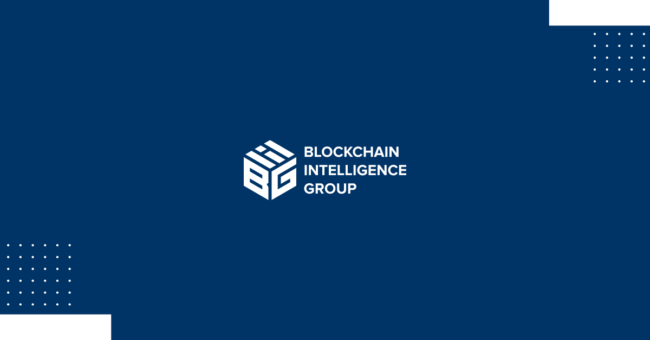What is my blockchain strategy?
Back in 2021 an Harvard Business Review article posited that blockchain, namely CBDCs, possibly pose an existential risk to banking. We believe that blockchain technology will augment and improve established financial infrastructure going forward with crypto next to fiat services.
According to CB Insights, the market intelligence platform, banks have a lot to fear regarding blockchain, decentralized finance and cryptocurrency. The advantages of decentralized finance for payments, loans, fundraising and fraud prevention create competition for traditional financial systems.
Then again, because criminals regularly exploit cryptocurrency and digital assets to support their illicit activities of money laundering, cybercrime, extortion, ransomware and others, governments and regulators perceive cryptocurrency as a venue for criminals to create threats to national security.
While this assertion appears to be true at first, available facts show that financial crimes allowed by cryptocurrency pale in contrast to those enabled by cash. In fact, any crime perpetrated with crypto leaves a trail of data, whereas fiat by its offline and physical nature cannot.
Furthermore, government bodies like the Monetary Authority of Singapore, the Hong Kong Monetary Authority, Securities and Exchange Commission, the Futures Trading Commission and more have already adopted guidelines and advice for digital assets. Increased regulatory monitoring is expected to increase trust and interest.
Blockchain Supremacy
It is indisputable that blockchain technology brings revolutionary advantages over traditional financial transactions, playing a major role in the widespread adoption of cryptocurrency.
“We expect the number of global crypto owners to reach 1 billion by the end of 2022. The global crypto population has increased by 178% in 2021, rising from 106 million in January to 295 million in December.”
Crypto Market Sizing Report by Crypto.com
Blockchain.com: number of transactions per day is over 270,000 on average.
Those advantages are imminent in various forms of daily financial activities.
Payments
Blockchain technology provides a near instant and low-cost method of sending payments that eliminates the need for third-party verification and outperforms the processing times for conventional bank transfers.
Securities
To buy or sell assets such as stocks, debt and commodities, you must know who owns what. Today’s financial markets achieve this via a complex network of brokers, exchanges, central security depositories, clearinghouses, and custodian banks. These parties are based on an antiquated system of paper ownership that is not only slow but also inaccurate and prone to deception.
Blockchain technology has the potential to create more efficient, interoperable capital markets by tokenizing traditional securities such as stocks, bonds, and alternative assets and putting them on public blockchains. For instance, tokenized securities, which use blockchain technology, have the potential to eliminate middlemen such as custodian banks entirely, lowering asset exchange fees.
Know Your Customer and Fraud Prevention
According to BNY Mellon Treasury Services, one of the leading causes of concern for the banking industry is an increase in fraud and cyberattacks. Because most banks use centralized ledger systems to store all customer information, hackers can more easily attack and access that information.
Blockchain technology, by decentralizing information storage, helps prevent hackers from gaining easy access to all information at once. Blockchain analytics platforms leverage this capability by monitoring transactions, providing customer risk scoring and facilitating the investigation of suspicious activities for investigators and law enforcement agents.
Smart Contracts
Additionally, blockchain enables the use of smart contracts which have the potential to automate manual processes ranging from processing claims and complying with regulations to automating the commitment to contract terms.
Using smart contracts is another way to ensure secure online transactions. They operate on an “if/then” basis, which means that the next step of the process will not occur if the previous one is not completed, allowing for more safety in the transaction process.
Elements of a blockchain-leading strategy
Cryptocurrencies, such as Bitcoin and Ether, can be used by anyone to send and receive money. As a result, public blockchains eliminate the need for trusted third parties to verify transactions, allowing individuals all over the world to make rapid, inexpensive, and borderless payments.
However, financial institutions need on-chain analytics to verify counterparty risk and automate transasction risk monitoring.
Banks have a variety of opportunities to drive growth by providing crypto services to acknowledge this demand.
- Offer digital asset custody
- Process payments
- Offer rewards via crypto payments
- Expand purchase options
- Offer interest on crypto
The success of your blockchain strategy isn’t tied to providing unique services to the community. Your organization’s competitive advantage can spark from the onboarding ease, the number of supported cryptocurrencies, transaction fees and limits, security measures and risk management procedures.
It’s crucial for businesses to realize that while blockchain promises to improve business processes and reduce some risks, it also introduces new threats to the company and the market. Understanding the development of regulatory guidance and its effects is crucial.
Blockchain analytics tools complement business adoption by securing digital assets and facilitating compliance with regulatory requirements.
Governments, consumers, businesses, and regulators are adopting digital currencies and decentralized finance solutions, putting financial institutions under pressure to respond. Many traditional financial institutions have yet to prioritize digital assets, placing them at a competitive disadvantage in an ever-changing market.
Get in touch with us to learn how to secure your digital assets strategy and services.

Written By: Omar Marzouk
Writer, Content marketing at Blockchain Group
Ready to Start Investigating?
Our intuitive solutions bring you closer to your goals on the first day.



